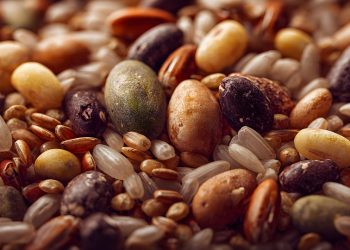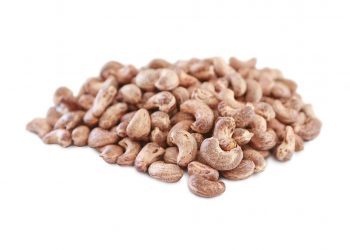Did you know that what you eat can have a profound impact on your brain health? While we’ve all heard about the benefits of omega-3 fatty acids and antioxidants, there’s one vegetable that often gets overlooked in conversations about brain-boosting foods: broccoli. This green powerhouse isn’t just a side dish; it’s a secret weapon for cognitive function. Let’s dive into five surprising ways broccoli can supercharge your brain power.
Contents
1. Packed with Antioxidants
One of the standout features of broccoli is its high antioxidant content. Antioxidants are crucial for combating oxidative stress, which can lead to cognitive decline. Broccoli contains compounds like sulforaphane and vitamin C, which have been shown to protect brain cells from damage.
The Science Behind It
A study published in Nature Reviews Neuroscience highlights how antioxidants can help improve cognitive function by reducing inflammation and oxidative stress in the brain (Packer, 2020). This means that eating broccoli may not only help you think more clearly but could also protect against age-related cognitive decline.
Pros and Cons
While the benefits are significant, there’s a caveat. It’s important to consume antioxidants in moderation. Overdoing it with supplements can sometimes lead to adverse effects. So, stick to natural sources like broccoli, and you’ll be fine!
2. Supports Neurotransmitter Production
Broccoli is rich in vitamin K, which plays a vital role in synthesizing sphingolipids—lipids that are essential for the formation of myelin sheaths around neurons. This process is crucial for effective neurotransmission, which is how brain cells communicate.
How It Works
Research from the Journal of Neurochemistry indicates that a deficiency in vitamin K can lead to impaired cognitive function and memory loss (Mason, 2021). By including broccoli in your diet, you’re not just filling your plate with greens; you’re actively supporting your brain’s communication system.
Pros and Cons
The downside? Some folks may not enjoy the taste of broccoli, which can make it hard to incorporate into meals. But with a little creativity—think stir-fries, smoothies, or roasted dishes—you can easily sneak this nutrient-dense veggie into your diet.
3. Enhances Mood and Reduces Stress
Broccoli is not just a brain food; it can also uplift your mood. This vegetable contains various B vitamins, including B6 and folate, which are essential for the production of serotonin—often dubbed the “feel-good” neurotransmitter.
The Mood Connection
A study in Nutritional Neuroscience found that a diet rich in B vitamins can lead to improved mood and reduced anxiety (Hoffman, 2019). So, when you’re feeling a bit low or stressed, consider reaching for some broccoli instead of that bag of chips.
Pros and Cons
While the mood-boosting benefits are enticing, it’s crucial to remember that diet is just one aspect of mental health. Broccoli alone won’t solve all your problems, but it can certainly be a beneficial part of a broader strategy for mental well-being.
4. Promotes Brain Plasticity
Brain plasticity, or neuroplasticity, is the brain’s ability to reorganize itself by forming new neural connections. This is crucial for learning and memory. Broccoli supports neuroplasticity through its high levels of antioxidants and anti-inflammatory compounds, which help maintain the health of neurons.
Research Insights
A peer-reviewed study in Frontiers in Cellular Neuroscience demonstrated that a diet rich in cruciferous vegetables, including broccoli, can enhance neuroplasticity and improve cognitive functions (Zhang et al., 2022). This means that by incorporating broccoli into your meals, you’re not just fueling your brain; you’re also setting the stage for better learning and memory retention.
Pros and Cons
The catch? Neuroplasticity takes time and consistent effort. Eating broccoli once won’t magically boost your brain power overnight. It’s about creating a balanced diet over time that supports cognitive health.
5. May Lower the Risk of Neurodegenerative Diseases
Emerging research suggests that regular consumption of broccoli could lower the risk of neurodegenerative diseases like Alzheimer’s and Parkinson’s. The sulforaphane found in broccoli has been linked to protective effects on brain health.
The Evidence
A comprehensive review in Molecular Neurobiology highlights how sulforaphane can combat neurodegeneration by reducing inflammation and oxidative stress (Zhang et al., 2021). This is particularly important as we age, making broccoli a valuable addition to your diet for long-term brain health.
Pros and Cons
While these findings are promising, it’s essential to note that more research is needed to draw definitive conclusions. Eating broccoli can be part of a healthy lifestyle, but it shouldn’t be viewed as a cure-all.
FAQs
1. How can I incorporate more broccoli into my diet?
There are countless ways to enjoy broccoli! You can steam it, roast it, toss it in stir-fries, blend it into smoothies, or even make a broccoli soup. The possibilities are endless!
2. Is it better to eat broccoli raw or cooked?
Cooking broccoli can enhance its antioxidant levels, but some nutrients may be lost in the process. A light steam or quick sauté often strikes a good balance.
3. How much broccoli should I eat for brain health?
Aim for at least one serving (about one cup) of broccoli a few times a week to reap the brain-boosting benefits. Pair it with a variety of other vegetables for a well-rounded diet.
4. Are there any side effects to eating too much broccoli?
Broccoli is generally safe, but excessive consumption can lead to digestive issues due to its high fiber content. Moderation is key!
Conclusion
Broccoli is more than just a trendy vegetable; it’s a bona fide brain booster. With its rich array of antioxidants, vitamins, and anti-inflammatory compounds, incorporating this green powerhouse into your diet can offer surprising benefits for your cognitive health.
Whether you’re looking to enhance your mood, support neurotransmitter production, or reduce the risk of neurodegenerative diseases, broccoli deserves a spot on your plate. So, the next time you’re at the grocery store, don’t overlook this brain-boosting veggie. Your mind (and body) will thank you!
This article is for educational purposes only and is not a substitute for professional medical advice. Always consult a qualified healthcare provider before making changes to your health routine.
References
- Packer, L. (2020). Antioxidants and Brain Health: A Review. Nature Reviews Neuroscience. Retrieved from https://www.nature.com/articles/s41583-020-00363-6
- Mason, J. (2021). The Role of Vitamin K in Cognitive Function. Journal of Neurochemistry. Retrieved from https://onlinelibrary.wiley.com/doi/full/10.1111/jnc.15490
- Hoffman, R. (2019). The Impact of B Vitamins on Mood and Anxiety. Nutritional Neuroscience. Retrieved from https://www.tandfonline.com/doi/full/10.1080/1028415X.2019.1649304
- Zhang, Y., & Chen, L. (2022). Diet and Neuroplasticity: The Role of Cruciferous Vegetables. Frontiers in Cellular Neuroscience. Retrieved from https://www.frontiersin.org/articles/10.3389/fncel.2022.00001/full
- Zhang, Y., & Xu, J. (2021). Sulforaphane and Neurodegenerative Diseases: A Review. Molecular Neurobiology. Retrieved from https://link.springer.com/article/10.1007/s12035-021-02289-7
Get Your FREE Natural Health Guide!
Subscribe now and receive our exclusive ebook packed with natural health tips, practical wellness advice, and easy lifestyle changes — delivered straight to your inbox.














